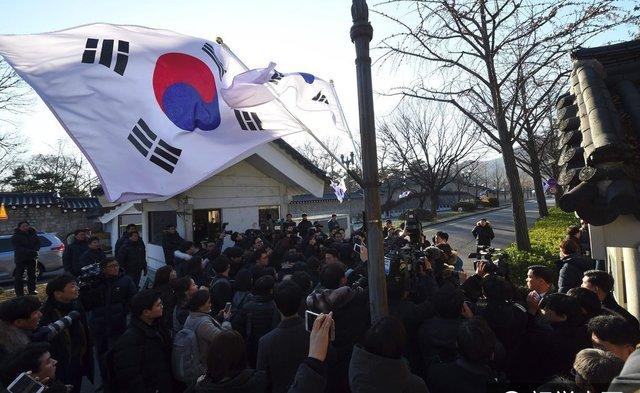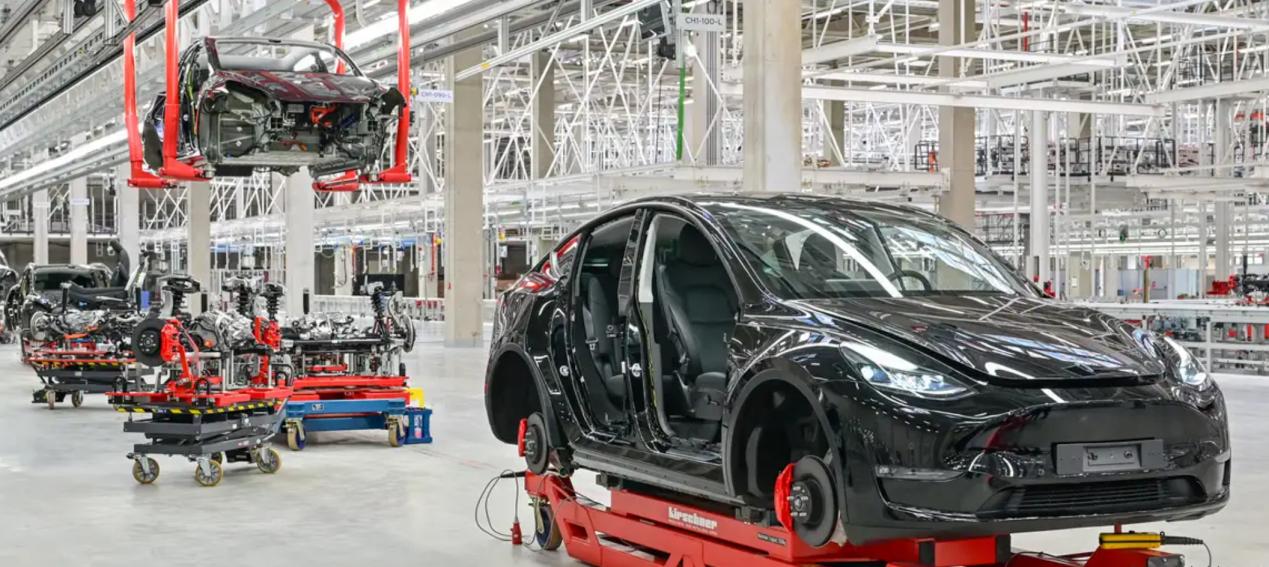
An unprecedented storm is sweeping through South Korea's political scene. Recently, the Senior Public Officials Crime Investigation Agency (Seok-Yoon) launched an arrest warrant execution process that shocked the country, targeting South Korean President Yoon Seok-yoon. However, the operation did not proceed smoothly as expected, but encountered unprecedented obstacles in front of the presidential palace, and there was a fierce standoff with the military police inside the palace. This scene not only made South Korea's domestic public opinion in an uproar, but also made the international community look sideways.
It began with a series of corruption charges against President Yoon Seok-yue. As a head of state, Yin Xiyue should be a model of national integrity and the rule of law, but the recent scandals have plunged him into an unprecedented crisis of trust. After a long period of investigation and evidence collection, the public prosecutor's Office finally decided to execute an arrest warrant against him to further find out the truth. However, the decision was met with stiff resistance in front of the presidential palace.
An emergency martial law team from the Public Relations Office arrived in front of the presidential palace in Hannam-dong, Yongsan-gu, Seoul. Despite the overcast sky, the atmosphere was tense. The working group wore bulletproof vests, carried batons and walkie-talkies, and looked solemn and determined. Their goal was clear: to enter the residence and execute the arrest warrant for Yin Xiyue.
However, things did not go as smoothly as they expected. A large number of military and police personnel had been waiting at the gate of the residence. They are in uniform, armed and ready to fight. When the working group of the public relations Office tried to enter the residence, the military and police personnel immediately stepped forward to block, and the two sides immediately fell into a fierce standoff.
The working group of the Public Relations Office began to clear the barricades and tried to force its way into the residence. However, the move was met with stronger resistance from military and police personnel. The two sides went back and forth, pushed each other, and even got into a physical fight. In this fierce confrontation, the working group of the Public Relations Office, although large in number, was powerless in the face of trained military and police personnel.
According to Yonhap News Agency and other South Korean media reports, the focus of the standoff is the director of the South Korean Presidential Security Bureau. He is adamant that investigators will not be allowed to search the presidential residence to execute the arrest warrant for Mr. Yoon. This decision not only shocked and angered the working group of the Public Relations Office, but also disappointed and helpless South Korean people.
In this confrontation, a total of 150 personnel were dispatched by the Public prosecutor's Office, including 30 relevant personnel of the Public prosecutor's Office and 120 members of the police special investigation team. Of them, 80 people have entered the residence, trying to find Yin Xiyue's whereabouts. However, due to the tenacious resistance of the military and police personnel, their operation progressed slowly and even reached a stalemate. The remaining 70 personnel stood by outside the residence, ready to be reinforced.
It is worth noting that in this standoff, suspected troops under the Capital Defense Command were also involved in blocking the investigators. This news undoubtedly makes the situation more complicated and serious. As the security force of the country, the military should be a strong backing to maintain the rule of law and order, but at this critical moment, they chose to side with the president and became a force that obstructed justice.
The standoff not only tested the limits of the rule of law in South Korea, but also exposed deep-seated problems in the country's political system. As the head of state, Yin Xiyue should be the defender and enforcer of the rule of law in the country, but he openly defied the law in his official residence. Such behavior not only seriously undermines the dignity and authority of the law, but also seriously undermines the trust and expectations of the South Korean people in the rule of law.
More seriously, the standoff has exacerbated divisions and unrest in South Korean society. Outside the presidential palace, a large crowd of people and media gathered. They waved flags and chanted slogans in support of the law and displeasure with the president. Inside the mansion, however, there was chaos and tension. Police and military personnel fought with each other, even violently. This situation has not only shocked and angered the South Korean people, but also worried and disturbed the international community.
In this confrontation, we cannot help but ask: Where is the rule of law in South Korea? Why are the country's laws and institutions unable to effectively check and supervise the president? As a head of state, why can Yin Xiyue openly resist the sanctions of the law? The answers to these questions will not only affect South Korea's political system and rule of law, but also the future and well-being of its people.
In fact, the confrontation was no accident. It reflects the deep-seated problems and contradictions of the Korean political system. South Korean politics has long been plagued by problems such as the concentration of power and the breeding of corruption. These problems were further aggravated and worsened during Yin Xiyue's administration. He used his power for his own personal gain, even at the expense of the interests of the state and the well-being of the people. Such behavior has not only seriously damaged the political ecology and the construction of the rule of law in South Korea, but also seriously damaged the trust and expectations of the South Korean people in the government.
However, faced with these problems and contradictions, the South Korean government has not taken effective measures to solve them. Instead, they chose to cover up and avoid. This attitude has not only made the problem more serious and complicated, but also led to growing frustration and dissatisfaction with the government. The outbreak of this confrontation is a concentrated reflection of people's frustration and dissatisfaction with the government.
In this confrontation, we have seen the fragility and weakness of the rule of law in South Korea. We have seen the abuse of political power and corruption. We are also seeing growing frustration and dissatisfaction with the government. And yet, despite the gravity of the situation, we still believe that justice may be late, but it is never absent. As long as the South Korean people adhere to the belief and pursuit of the rule of law, as long as they have the courage to expose and fight corruption, then this storm will eventually pass, and South Korea's political system and rule of law construction will usher in a new dawn.
Of course, achieving this goal will not be easy. It requires the joint efforts and hard work of the Korean people. It needs the government to take effective measures to solve it. It also needs the support and help of the international community. But no matter what, we should all believe that as long as justice and the rule of law shine on our way forward, we will be able to overcome all difficulties and challenges and usher in a better future. In this confrontation, we have seen the shortcomings and problems of the Korean political system. But we have also seen the Korean people's belief in and pursuit of the rule of law. This belief and pursuit is not only the source of motivation for us to move forward, but also a powerful weapon to overcome all difficulties and challenges.

The global electric vehicle market in 2025 is experiencing intense turbulence. Tesla, once a disruptor that reshaped the industry landscape, is now mired in an unprecedented sales crisis.
The global electric vehicle market in 2025 is experiencing …
Recently, Chinese telecom companies Huawei and ZTE signed a…
Recently, according to Xinhua News Agency, Israel's air str…
A strongly worded report from the Equality Trust argues tha…
On November 27, 2025, Alibaba officially entered the global…
The focus of the global financial market in 2025 has always…